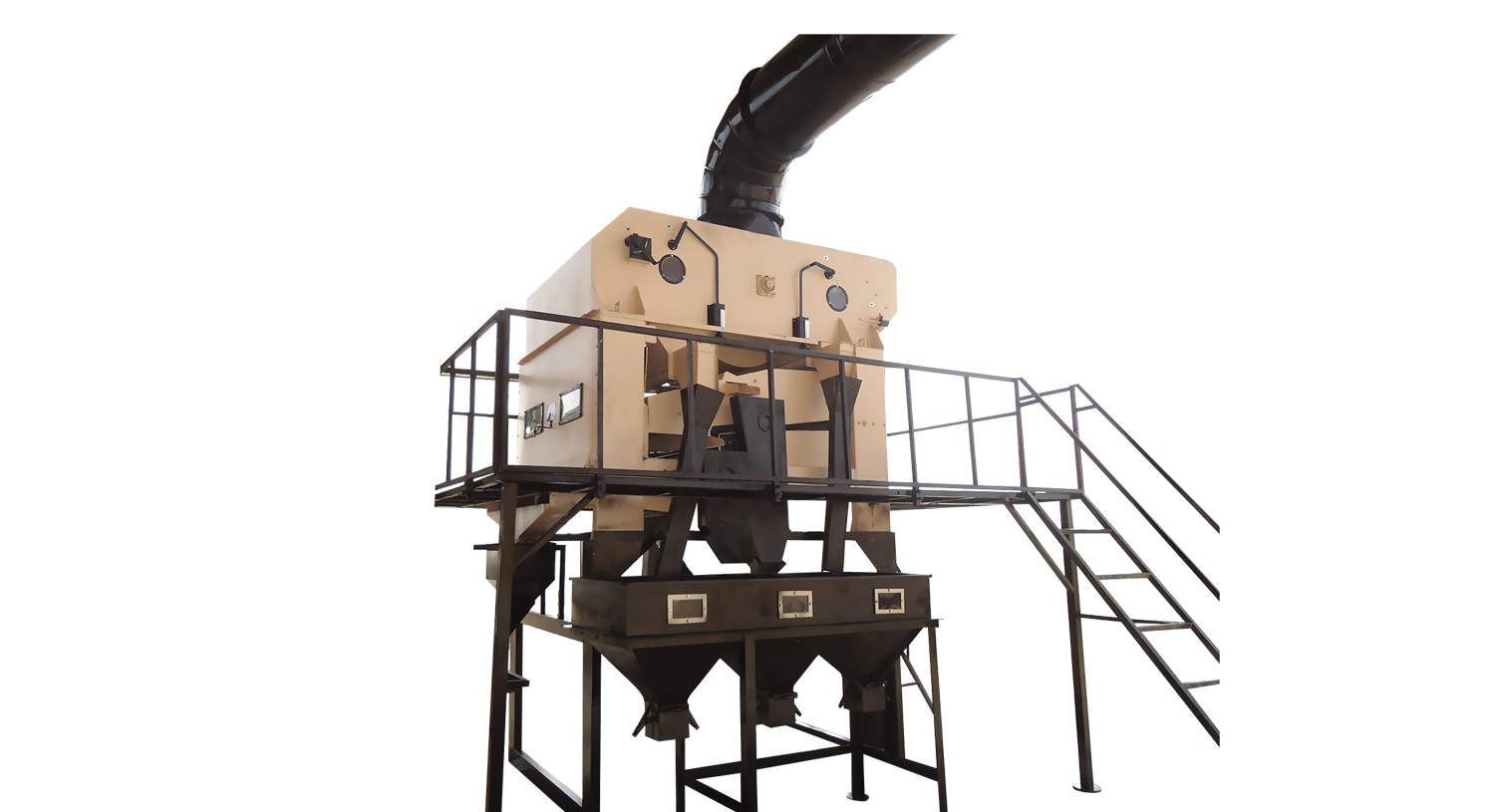This machine sorts the grains based on two parameters, weight and shape
In the first stage, the seeds are exposed to air suction, which leads to the separation of lighter wastes such as straw, dust, peel of seeds, hollows of seeds, herbs, thorns and others from the original seeds. In the second stage, the seeds enter two distinct sieve tanks, which are included in parallel. In both sieves, the grains are separated according to size, then the grains of each of the two tanks are combined, and once again the grains are exposed to air suction for uniformity. Replacement sieves allow users to separate all types of seeds.
1- Entrance
2- Air intake channel
3- Feed valve
4- Spiral light waste
5- Feed valve adjustment knob
6- Sieve
7- The first wind adjustment knob
8- The first wind valve
9- Fan
10- The second wind valve
11- The second wind adjustment knob
12- Air intake channel valve
13- Air intake channel
14- Spiral light waste
15- Crank
16- The main seed outlet
Input seeds
Larger grains than the main grains
Smaller grains than the main grains
The dust
Output seeds
| Capacity | 5 (t/h) |
| Required power | 12/5 (kw) |
| Number of fans | 1 |
| Length | 2740 (mm) |
| Width | 2222 (mm) |
| Height | 2461 (mm) |
| Upper sieve surface | 2/79 (m2) |
| Lower sieve surface | 4/84 (m2) |
